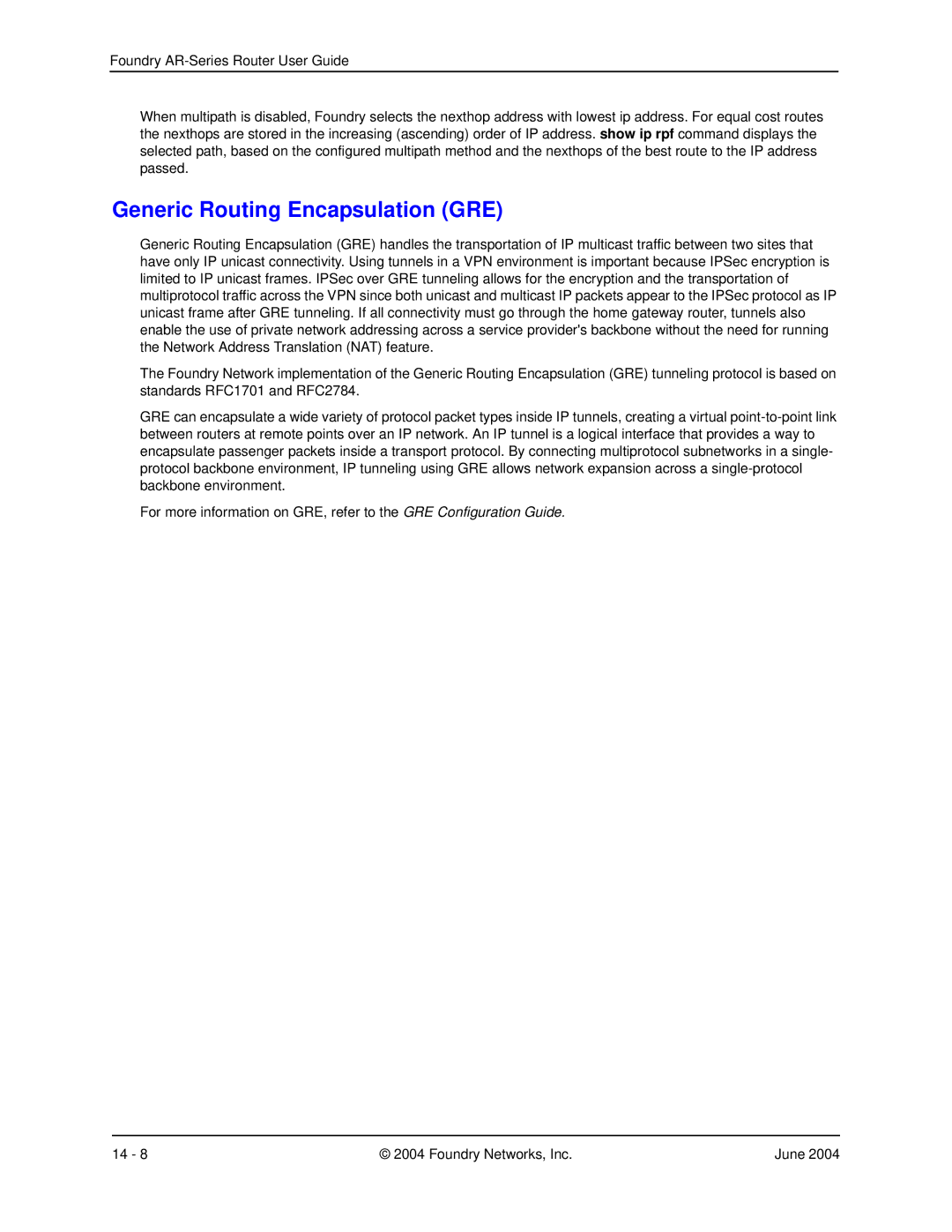
Foundry
When multipath is disabled, Foundry selects the nexthop address with lowest ip address. For equal cost routes the nexthops are stored in the increasing (ascending) order of IP address. show ip rpf command displays the selected path, based on the configured multipath method and the nexthops of the best route to the IP address passed.
Generic Routing Encapsulation (GRE)
Generic Routing Encapsulation (GRE) handles the transportation of IP multicast traffic between two sites that have only IP unicast connectivity. Using tunnels in a VPN environment is important because IPSec encryption is limited to IP unicast frames. IPSec over GRE tunneling allows for the encryption and the transportation of multiprotocol traffic across the VPN since both unicast and multicast IP packets appear to the IPSec protocol as IP unicast frame after GRE tunneling. If all connectivity must go through the home gateway router, tunnels also enable the use of private network addressing across a service provider's backbone without the need for running the Network Address Translation (NAT) feature.
The Foundry Network implementation of the Generic Routing Encapsulation (GRE) tunneling protocol is based on standards RFC1701 and RFC2784.
GRE can encapsulate a wide variety of protocol packet types inside IP tunnels, creating a virtual
For more information on GRE, refer to the GRE Configuration Guide.
14 - 8 | © 2004 Foundry Networks, Inc. | June 2004 |
